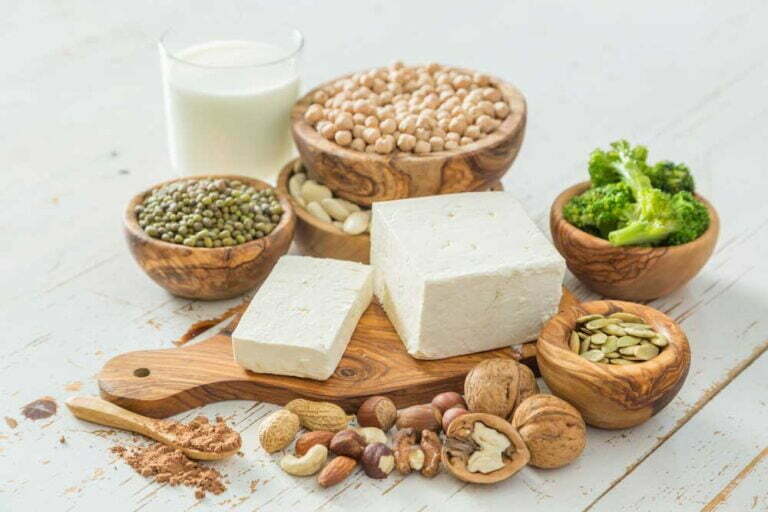Fermented Foods For Your Gut and Health
Hippocrates summed it up best: “All disease starts in the gut.” Recent research has confirmed that you cannot ignore your microbiome when trying to improve, prevent or reverse diseases.
Takeaways:
- – The process of fermentation is when microorganisms breakdown sugars found in food.
- – Fermented foods have many health benefits, including reduced inflammation, improved immune function, improved metabolic syndrome and better gastrointestinal function.
- – The best sources are yogurt, sauerkraut (kimchi), kombucha (kombucha), tempeh, and apple cider vinegar.
- – To improve digestion and absorption of nutrients, it may be better to consume/drink fermented food with a meal.
- – Fermented foods are beneficial to consume daily and even more than once a day.
- – Fermented foods should only be avoided by those who are instructed to do so by their physician. Children and pregnant women are encouraged to consume them.
- – Increase your intake gradually to avoid bloating or discomfort while your body adjusts.
Expert researchers Drs. Justin and Erica Sonnenburg PhDs are the authors of The Good Gut, as well as many other publications, which include eating more fermented food.
What is fermentation?
In an anaerobic environment (low oxygen), bacteria, yeasts and other microorganisms convert carbohydrates, primarily glucose, into alcohol, acids, gases and other compounds. Fermentation is a process that has been used for thousands of year in cultures around the globe to produce cheese, breads, beer, wines, yogurt, and many other foods.
Potential benefits
Fermented foods have many health benefits for consumers, including improved digestion, increased microbiota diversity and health promotion.
The results of a remarkable study showed that a 10-week intervention consisting of six servings of fermented food per day reduced inflammation markers, improved immunity and enhanced microbiome biodiversity more than a high fiber diet alone.
Women with minor gastrointestinal symptoms who consumed fermented milk for 4 weeks showed significant improvement compared to those who did not consume it.
A review of randomized controlled trials found that yogurt consumption was associated with a decrease in waist circumference, metabolic risk and overweight/obesity.
In a recent systematic review of 125 articles focused on fermented food, it was found that health-promoting chemicals were present in fermented food including:
- Antioxidant compounds. GABA, folates, phenolic compounds, CLA.
- Anti-hypertensive compounds. ACE-inhibitory peptides, GABA.
- Higher nutrient levels. Folate, vitamin K2, and riboflavin.
- strains probiotic
[ruby_related heading=”More Read” total=3 layout=1 offset=5]
Best sources
The best sources are those that have unsweetened, live bacteria. Examples include:
- Yogurt is made from both dairy and non-dairy products.
- Sauerkraut;
- Kimchi;
- Kefir;
- Kombucha;
- Apple Cider Vinegar;
- Natto;
- Tempeh;
- Miso;
- Fermented Vegetables, clearly marked as such (not just pickled);
- Some cheeses are clearly marked with live cultures (e.g. cottage cheese, Feta).
When is the best time to consume fermented foods?
It is not known if there is a better time to eat fermented food than another. However, it appears that eating them along with a meal rather than by themselves improves the nutrient absorption as well as digestion of the meal components.
Can I eat them everyday?
Yes, you can eat fermented food every day. According to research from The Sonnenburg Lab, multiple servings per day are ideal for microbiome diversification. Consider a few factors when consuming fermented foods daily. Some fermented food is high in sugar and sodium. To minimize sugar consumption, choose unsweetened fermented food as much as possible. Eat less salt or low-sodium foods if you have hypertension or are sensitive to it.
Who should avoid fermented food?
Some people with health conditions, like those who have an immunodeficiency or histamine intolerance may be advised to limit or avoid fermented food. You should follow the advice of your doctor or dietitian on which foods you should eat. Fermented foods are not only safe for pregnant women and children, but also have many health benefits.
How to avoid side effects?
You may experience temporary bloating if you increase your intake of fermented foods rapidly. This is because your microbiome will adjust and your digestion. Increase your intake gradually over several weeks to avoid discomfort.
Fermented foods may be the key to better health. Unsweetened fermented vegetables, dairy products and beverages can help improve blood pressure, metabolic syndrome, weight, inflammation and immune dysfunction.
Resources
- NIH. Health-Promoting Components in Fermented Foods: An Up-to-Date Systematic Review.
- NIH. Associations between Yogurt Consumption and Weight Gain and Risk of Obesity and Metabolic Syndrome: A Systematic Review.
- Stanford Medicine. Fermented-food diet increases microbiome diversity, decreases inflammatory proteins, study finds.







